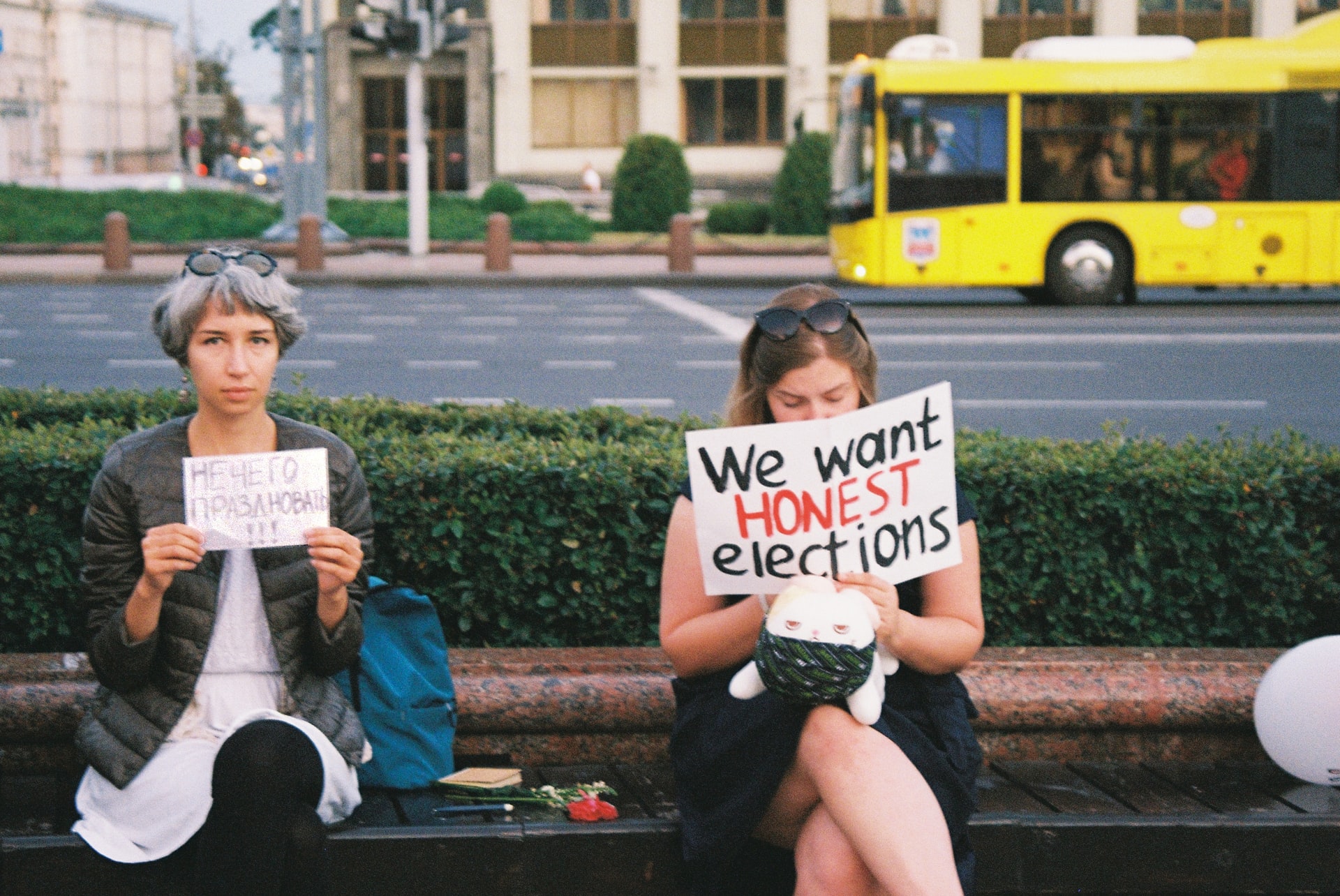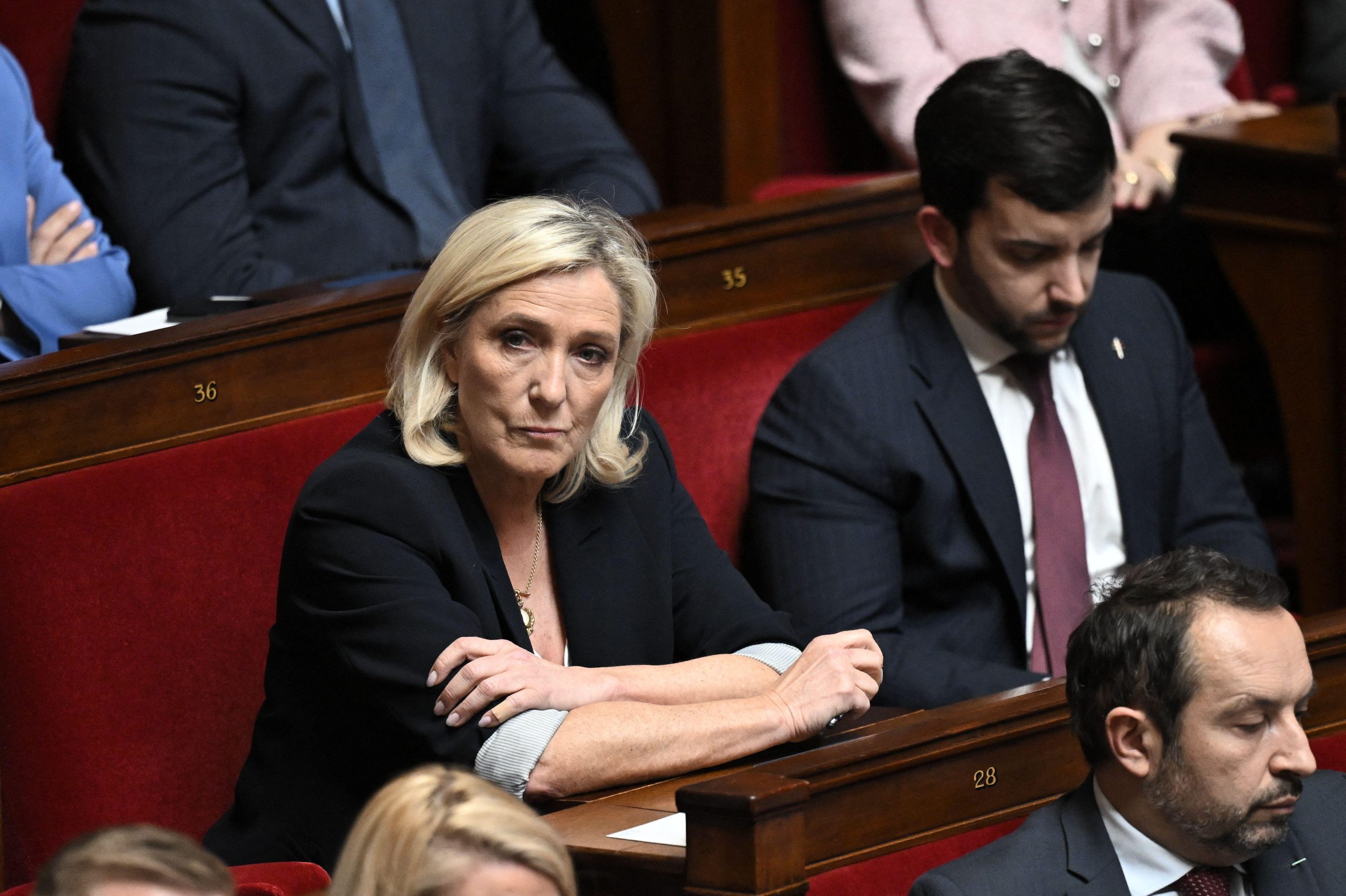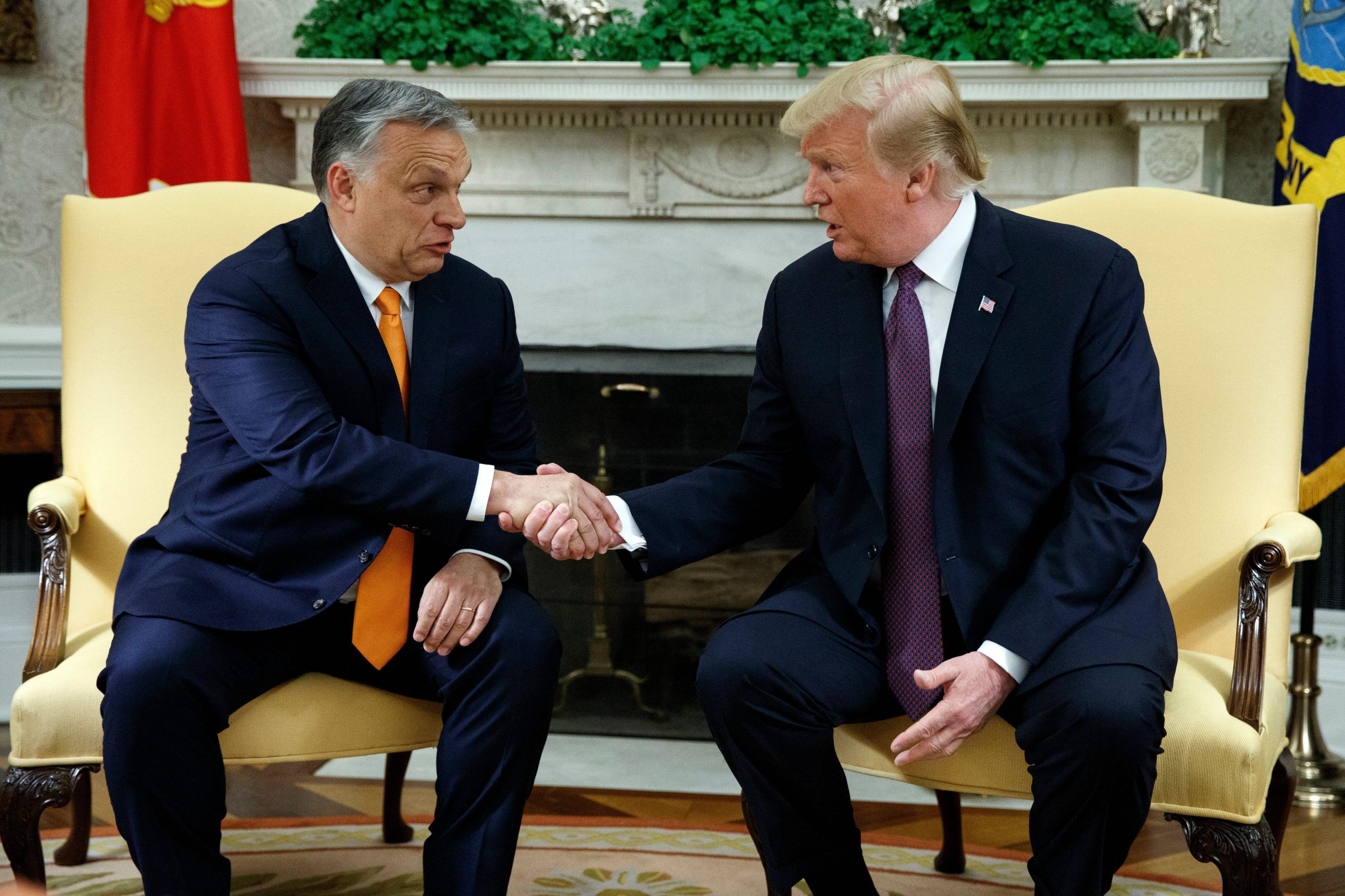[vc_row][vc_column][vc_single_image image=”114603″ img_size=”full” add_caption=”yes”][vc_column_text]“As long as you don’t kill me, new elections won’t happen,” Belarusian president Alexander Lukashenko told workers at the MKZT truck factory in Minsk, the capital city of Belarus last week.
The speech followed a presidential election on 9 August in which Lukashenko claims to have won a landslide victory to serve for a sixth term with just over 80% of the vote, a result heavily contested domestically and internationally. Mass anti-Lukashenko protests have been held across Belarus since the results, with many people saying the result was fraudulent and a result of vote-rigging, while the UK government does not recognise the result and The Council of EU stated that the election was “neither free nor fair”.
Belarus has been ruled by Lukashenko since 1994, after he became the country’s first president in the wake of Belarusian independence from the USSR in 1991. He rules the country with an iron fist; Belarus is the last country in Europe which still uses the death penalty, and many forms of freedom of expression are tightly governed. The state controls the media to the extent that Belarus is ranked at 153 out of 180 countries on the World Press Freedom Index, one of the lowest rankings in the world, not just in Europe. How did a country, freed from the grips of Soviet Union and starting afresh with a new constitution, end up ruled by a man internationally dubbed as “the last dictator in Europe”?
Two years into his presidency, Lukashenko set about dismantling the aspects of the constitution which would have allowed for genuine democracy. In 1996 he demanded a referendum which asked the public to vote on extending his first term from five to seven years and to increase his powers. After the vote went in his favour (although the international community questioned the validity of the result), Lukashenko dissolved the elected Supreme Soviet parliament, who had resisted the referendum, and installed a handpicked collection of loyalists to hold seats in government, effectively wiping out any political opposition and obstacles to authoritarian control.
Another referendum in 2004 took Lukashenko’s desire to retain presidency a step further. Nearing the end of his second term, the maximum number allowed by the constitution, a referendum was held which asked the public to allow him to run a third time. When this passed with an apparent large majority, the limit on the number of terms a president could sit was essentially abolished and Lukeshenko’s grip on power tightened.
In the years between these two pivotal moments in Belarusian history, Index reported from the ground in Belarus about the deterioration of freedom of expression under an evermore authoritarian regime.
A 1997 Index article chronicling attacks on freedom of expression around the world reported that Belarusian journalist Pavel Sheremet was still in the hands of the Belurusian KGB. A “vocal critic of Lukashenko’s government”, Sheremet had previously been stripped of his journalist accreditation for “insulting the ‘president and nation of Belarus’.” Fifteen journalists who picketed for his release were also arrested and detained in a clear signal to the citizens of Belarus: any form of dissent, or support of a dissenter, would be aggressively crushed.
A 1999 report by Michael Foley confirmed this trend; he found that journalists in Minsk were worse off than those in any other former Soviet state. Just five years into Lukashenko’s rule, Foley reported that “the electronic media is almost totally state-owned and the print media is forced to use state owned printing plants”.
As Lukashenko won the election in 2006, securing a third term that never should have been, human rights and freedom of expression in Belarus continued to deteriorate.
LGBTQ rights were and continue to be all but non-existent, with gay marriage constitutionally banned and few legal protections afforded to LGBTQ people. Freedom of assembly has been violated by the authorities’ attempts to prevent Gay Pride events from taking place. A 2000 parade was banned by authorities just hours before the fact, and in 2006 a conference on human rights and gay culture was cancelled after its organisers were arrested.
In 2011, months after Lukashenko’s fourth election victory, James Kirchick reported for Index from Minsk that the regime still had a grip on the media: “the Lukashenko regime has effectively rendered political opposition moot through its near domination of the press. It has silenced critical voices through two means: state control of mass media outlets like television and radio, and onerous registration laws that make the practice of independent journalism a dangerous pursuit”.
In the 10 years since the 2010 election, there has been another election, taking place in this landscape that is weighed heavily in Lukashenko’s favour. As Andrei Aliaksandrau reported for Index in 2017, TV stations continue to be state-owned and Lukashenko continues to rule as a dictator. The 2015 election, similarly to those preceding it, was dogged by controversy and suggestions of an undemocratic process. “The [2015] election process was orchestrated, and the result was preordained”, said Miklós Haraszti, The United Nations Special Rapporteur on human rights in Belarus.
The 2020 election result has seen scenes of protest unlike Belarus has experienced before. After 26 years of propaganda and authoritarian leadership, Belarusians appear to be prepared to tolerate it no longer. Journalists have gone on strike, refusing to be used as propaganda tools. Lukashenko shut down the internet across most of the country in the days following the election, in an attempt to quash dissent, and horrific accounts of intimidation and torture have come out of the country, as our interview with the wife of an arrested protester reveals. But now almost three weeks on the people are still making their voices heard. Svetlana Tikhanovskaya, Lukashenko’s only opponent during the election after other contenders were picked off, spoke to the European parliament’s foreign affairs committee from Lithuania where she has fled to escape violence: “The intimidation didn’t work. We will not relent.” Could this finally mark the end of Europe’s last dictator? We all hope so. [/vc_column_text][/vc_column][/vc_row][vc_row][vc_column][/vc_column][/vc_row]





